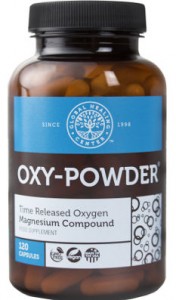For many, conditions affecting the digestive system and, in particular, the colons are something they don’t find easy to discuss or even face up to. However, such illnesses need to be taken seriously. For instance, within 10 years of their original diagnosis, almost one-third of those who suffer from an active form of ulcerative colitis require surgery for a colostomy1.
Treatment shouldn’t be taken lightly then for the likes of ulcerative colitis – a form of inflammatory bowel disease (IBD), which intermittently inflames and causes ulcers on the innermost wall of the colon. But equally, surgery is far from the only option; indeed, depending on the timing of diagnosis, there may be several other avenues to explore in treating the condition, not only to alleviate symptoms but hopefully to force it into remission.
Surgical treatment
As mentioned above, surgery for non-responsive patients may prove inevitable, especially if ulcerative colitis has unfortunately developed into colorectal cancer. Standard surgery comprises two stages, although recently some doctors have favoured a three-stage approach – however, research could suggest this latter approach may not be as safe as the former2, 3.
Pharmaceutical treatment
Long before it may be decided surgery’s the only course of action for an afflicted patient, though; drugs are commonly deployed to fight the condition. This, depending, of course, both on the condition’s severity and patient responsiveness, often involves corticosteroids. Often, through treatment of such drugs, nearly one-third of patients (30%) enter remission after one year4, 5.
Acupuncture treatment
It’s perhaps understandable that, when it comes to treating a condition like ulcerative colitis (which, if left unchecked, can get dramatically worse), some may be sniffy when the word acupuncture is mentioned; others may be downright against its suggestion at all. However, two relatively recent studies point to potentially positive results from acupuncture as ulcerative colitis treatment.
The first attested that, in addition to a drug commonly used for ulcerative colitis, the heating of an acupuncture site (otherwise known as moxibustion) lent patients suffering from mild to moderate symptoms ‘greater relief and symptom reduction’ than those who received the drug alone6. The second suggested that patients whom received (again in addition to a traditional drug) Kuijiening plaster – to treat the ulcerative colitis-related spleen-yang deficiency – enjoyed better results than those whom merely had the drug treatment7.
Supplement treatment
Finally, if studies suggest we should consider the positives of acupuncture in treating ulcerative colitis, then surely we ought also to take seriously research – and patient testimonials – that clearly state treatment through supplements and probiotics can pay dividends. With studies suggesting probiotic supplementation is favorable8, sufferers may consider Restore (for Gut Health), which promotes the strengthening of the tight-junction barrier in small and large gut membrane cells for an optimal gut environment,or the probiotic Saccharomyces boulardii (a natural and safe supplement that scientific research has concluded helps provide bowel health, comfort and function – it’s also recognised as the number one probiotic for managing diarrhoea).
This supplement is available directly through the Finchley Clinic, as are others that can help treat ulcerative colitis, such as Oxy-Powder (which promotes optimal colon health and aids in cleansing and oxygenating the intestines) and Colostrum Plus (which promotes digestive health, tackles inflammatory problems and supports the immune system). When trying supplements, of course, it should be noted that no person’s body is the same and so results can vary – but then so can most other forms of treatment. Evidently, when it comes to ulcerative colitis, depending on your diagnosis (and your doctor’s advice), there are many options of treatment available – certainly not just surgery.
References:
1 Nieminen U, Jussila A, Nordling S, Mustonen H, Färkkilä MA. Inflammation and disease duration have a cumulative effect on the risk of dysplasia and carcinoma in IBD: a case-control observational study based on registry data. Int J Cancer. 2014 Jan 1; 134 (1): 189-96. doi: 10.1002/ijc.28346.
2 Hicks CW, Hodin RA, Bordeianou L. Possible overuse of 3-stage procedures for active ulcerative colitis. JAMA Surg. 2013 Jul; 148 (7): 658-64. doi: 10.1001/2013.jamasurg.325.
3 Dayan B, Turner D. Role of surgery in severe ulcerative colitis in the era of medical rescue therapy. World J Gastroenterol. 2012 Aug 7; 18 (29): 3833-8. doi: 10.3748/wjg.v18.i29.3833.
4 Mehta SJ, Silver AR, Lindsay JO. Review article: strategies for the management of chronic unremitting ulcerative colitis. Aliment Pharmacol Ther. 2013 Jul; 38 (2): 77-97. doi: 10.1111/apt.12345.
5 Reinisch W, Sandborn WJ, Panaccione R, Huang B, Pollack PF, Lazar A, Thakkar RB. 52-week efficacy of adalimumab in patients with moderately to severely active ulcerative colitis who failed corticosteroids and/or immunosuppressants. Inflamm Bowel Dis. 2013 Jul; 19 (8): 1700-9. doi: 10.1097/MIB.0b013e318281f2b7.
6 Zhang LC, Zhang S, Zhong W, Long JX, Li XN, Chen LS. Observation on clinical effect of ZHUANG medicine mediated thread moxibustion combined with medication for patients with ulcerative colitis. Zhen Ci Yan Jiu. 2013 Oct; 38 (5): 399-402.
7 Huang L, Cai Z, Zhu Y, Wan H. Treatment of ulcerative colitis with spleen and kidney yang deficiency by kuijiening plaster: a randomized controlled study. Zhongguo Zhen Jiu. 2013 Jul; 33 (7): 577-81.
8 De Greef E, Vandenplas Y, Hauser B, Devreker T, Veereman-Wauters G. Probiotics and IBD. Acta Gastroenterol Belg. 2013 Mar; 76 (1): 15-9.

